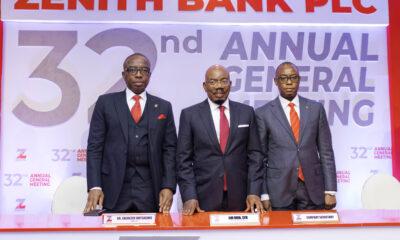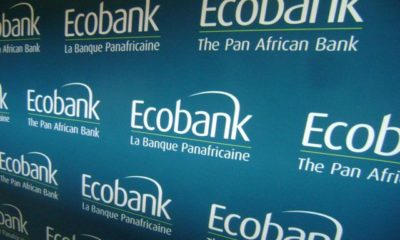Ecobank, one Africa’s leading lenders, grew gross earnings by 15% in the first half (H1) of 2022, according to the bank’s latest unaudited financial statement accessed by Investors King.
Gross earnings rose from N439.490 billion recorded in the first half of 2021 to N503.633 billion in the period under review.
Revenue also expanded by 13% to N379.348 billion, up from N334.882 billion filed in H1 2021. The growth was broad-based as operating profit before impairment charges advanced by 21% to N167.033 billion from N138.265 billion in H1 2021.
Profit before tax jumped 28% from N85.324 billion to N108.956 billion in the first half of 2022. Profit for the period stood at N77.313 billion, an increase of 24% from N62.553 billion achieved in H1 2021.
However, the bank’s total assets depreciated by 2% to N11.414 trillion from N11.689 trillion in H1 2021.
Similarly, loans and advances to customers declined by 3% to N3.939 trillion, down from N4.061 trillion. Deposits from customers also declined by 1% to N8.319 trillion.
Total equity dipped by 10% from N917.903 billion in H1 2021 to N823.236 billion.
Commenting on the sound performance, Ade Ayeyemi, CEO of Ecobank Group, said our results for the first six months of 2022 reflect not only the benefits of the firm’s diversification but also our resilience and capabilities to continue serving our clients and customers in a challenging environment and still generate adequate returns responsibly for our shareholders. As a result, we delivered a return on tangible equity of 19.5%, a record, and increased earnings per share for shareholders by 24% year-on-year.
In addition, profit before tax increased by 24% to $261 million and by 53% if you adjust the increase for the significant depreciation of some of our critical African currencies to the US dollar, says Ade Ayeyemi, CEO, Ecobank Group.
Ayeyemi continued: “We performed well because of our investments, including in technology, and Ecobankers’ continued dedication to meet customers’ financial needs, despite a challenging operating environment of high inflation, weakening African currencies, worsening government fiscal balances and lowering economic growth. In our Consumer Banking business, pre-tax profits increased 43% on higher deposit margins, loans, and debit card spending.
In Corporate and Investment Banking, profits rose 33%, as we gained share in the letters of credit market, payment volumes increased by 43% on Omniplus, and FX volumes grew by 25% as client activity rebounded from the pandemic. In addition, an increase in SME activity and growth in the payment business lifted profits in Commercial Banking by 15%.”
“Our investments in technology and digital capabilities have contributed to a reduction in our cost-to-serve. Along with revenue growth, the outcome is our record cost-to-income ratio of 56%. In addition, we increased impairment charges to reflect heightened credit risks. More importantly, we have proactively built central impairment reserves of $206 million, which we can deploy in a stressed credit environment. At the same time, our balance sheet remains liquid and adequately capitalised, providing us the capacity to serve our customers better.”
“Our service to our customers and communities, anchored on our vision to advance Africa’s economic development and financial integration, is widely recognised. Recently, Euromoney adjudged Ecobank for 2022 – Africa’s Best Bank, Africa’s Best Digital Bank and Africa’s Best Bank for SMEs. These accolades are a testament to our passion for serving clients and customers and our continued investments in technology, processes, and people. I am extremely proud of my colleague Ecobankers and thank them for their diligence. As always, we are passionately working towards realising our vision and remaining the bank that Africa and friends of Africa trust.” Ayeyemi concluded.


 Billionaire Watch3 weeks ago
Billionaire Watch3 weeks ago
 Startups4 weeks ago
Startups4 weeks ago
 News4 weeks ago
News4 weeks ago
 News4 weeks ago
News4 weeks ago
 Bitcoin4 weeks ago
Bitcoin4 weeks ago
 Naira4 weeks ago
Naira4 weeks ago
 Forex3 weeks ago
Forex3 weeks ago
 Treasury Bills4 weeks ago
Treasury Bills4 weeks ago


























